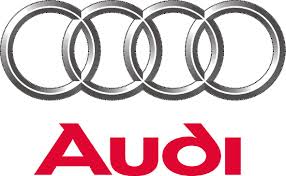TT Coupe L4-2.0L Turbo (BPY) (2008)
/Page-1946001.png)
Refrigerant: Service Precautions
R134a Safety Precautions
R134a Safety Precautions
CAUTION:
-
It is advisable to keep an eye bath to hand.
-
Should liquid refrigerant come into contact with the eyes, rinse them thoroughly with water for about 15 minutes. Then administer eye
drops and consult a doctor immediately even if no pain is felt.
-
The doctor must be informed that the injury was caused by refrigerant R134a. Should refrigerant come into contact with other parts of
the body despite compliance with safety regulations, these must likewise be rinsed immediately for at least 15 minutes with cold water.
-
Work may only be performed on the refrigerant circuit of an air conditioning system in well ventilated areas. Workshop extraction
systems are to be switched on.
-
Refrigerant must not be stored in low-level areas (e.g. cellars) or corresponding exits or light wells.
-
Welding, brazing and soldering work must not be performed on components of air conditioning system when charged. This also applies to vehicle
welding and soldering work if there is a danger of air conditioner components becoming hot. When performing paintwork repairs, the temperature
in the drying booth or preheating zone must not exceed 80 degrees C.
Reason:
Exposure to heat gives rise to considerable pressure in the system, which could cause the pressure relief valve to open.
Corrective action:
-
Discharge refrigerant circuit using A/C service station.
NOTE: Damaged or leaking components of the air conditioning system are not to be repaired by welding or soldering. They must always be
replaced.
Refrigerant vessels (e.g. charging cylinders of A/C service station) must never be subjected to excessive heat or exposed to direct sunlight.
Corrective action:
-
Vessels must never be completely filled with liquid refrigerant. Without sufficient room for expansion (gas cushion), vessels will rupture with
devastating effect in the event of an increase in temperature.
Refrigerant is never to be transferred to systems or vessels in which air is present.
Corrective action:
-
Evacuate systems and vessels before charging with refrigerant.
